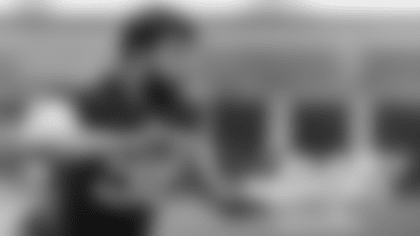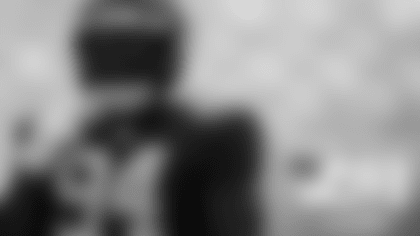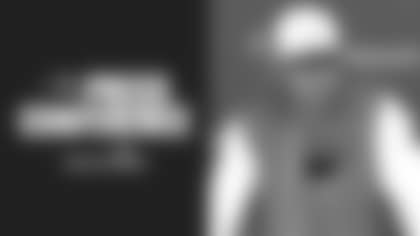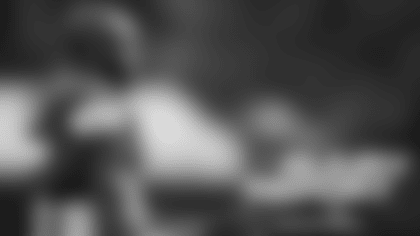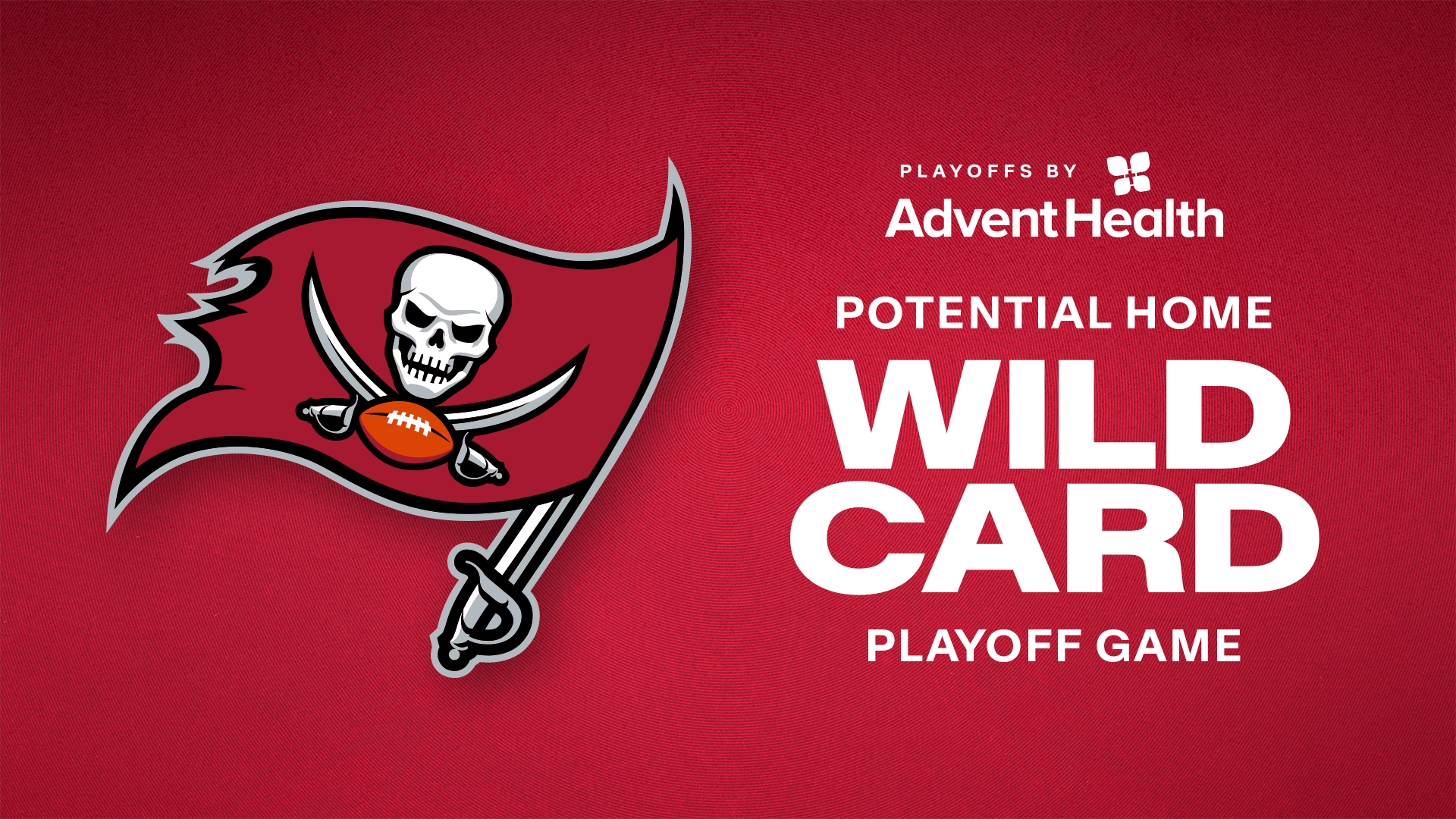OFFENSIVE COORDINATOR LIAM COEN
(On what stands out about the Saints defense)
"A physical unit – I've always respected 'D.A.' (Saints Head Coach Dennis Allen) and what he has done in terms of having a salty defense that runs to the football [and] plays hard. They've got playmakers. When they get their hands on balls, and they get the thing out, they've done a great job over the years of creating some turnovers and making plays. We've got to continue to try and get Mike [Evans] involved early, understanding that matchup and the success of our offense as he goes is a lot of times as we go. They do such a good job of mixing up their gameplan. They are very gameplan specific for each team, whether they're going to play a lot of man [coverage] this week, or a lot of three-deep [coverage], or play their [Tampa-2] looks – we've got to have a great plan of being able to adjust in-game to how they're going to play us. They also play a bunch of different front structures – under, over, jam. You don't really have a great tell of what they're going to do, so getting off to another fast start is really important for us to continue to have success early, get our guys into a rhythm, get everybody some touches early and figure out, 'OK, once we get into the game, what is the best way to attack these guys, especially in the run game and also in the pass game, as well?'"
(On the process for creating a gameplan that addresses all of the different looks that the Saints will show and that allows for in-game adjustments)
"We're typically talking about it over the headset and those coaches are relaying exactly what we're saying to their position groups. Sometimes we will get a couple of groups – whether it's like the tight ends and O-line – together to talk about run game, and the [running] backs. Or, in the pass game, 'OK, tight ends, running backs, wideouts.' Then, 'OK. O-line [and] quarterbacks and running backs talking about protections.' That's kind of how we do it in-game. Then halftime – man, halftime is fast. You have five minutes to get with your staff to talk about adjustments and what we want to do to attack them. Then you have another five minutes to explain it to your players. Halftime adjustments are sometimes a little more difficult to truly get all of that communicated, especially if you're up first in the second half. So that's kind of our rhythm and how we do it. It's all hands on deck and everybody communicating to their players."
(On the importance of closing out games offensively)
"I think that when it comes down to times of crisis and the game is [hanging in the balance] – you're tired, you're fatigued, you're maybe a little anxious, right? We have to stress and remind and go back to fundamentals and technique. What is my footwork? What is my track? What is my read? What is my assignment? How does each player – all 11… because on offense, if all 11 [players] aren't on the same page, a play is typically not successful. Whereas on defense, six guys could do the wrong thing, and you can get off the grass with a stop. So, if you look back at the last drive going back, we have it closed out and we have to be on the screws with the details, the footwork, the reads, the track and understand how everything is so important on every play to go close out a game. They know we're running it, we are going to run it and we had an opportunity to win that game, and we have to use that as a learning moment. If we don't learn from this and get better from this, it will happen again. And we emphasized it today in practice – the exact same situation, the exact same time, the exact same type of deal, we kind of replicated that today in practice. We went over the plays we would run, executed them and will continue to try and learn from those moments."
(On sustaining the run game and how having two running backs on the field at once can work to the team's advantage)
"We got going with some gap schemes last week early on, which I think helped create some movement and create some more holes and just find some things for guys, which helped, and then later in the game we started to lean on them with some of the midzone that we were getting five, six, eight yards a pop when we were running those at the end. Again, it's like, 'OK, how do we want to attack the New Orleans Saints?' Every week is different. We're still continuing to find out what our identity is, 'Who are we up front? Who are our [running] backs? What are they best at?' We've got to be good at both. We have to be good at both gap and zone [runs], but each week presents its own kind of ways to attack them. We'll see this week. We're still working through that. I think we have a good idea of how we want to attack these guys based on what we've seen. We also don't know what they're going to come out in and then '21 pony personnel' is… every week you don't really know what you're going to get. Like, most people play nickel [against] it, some people might play base or other coverages and structures. It just helps having two playmakers on the field, right? I mean, those guys are both playmakers. I think we know that we need to be better in those four-minute situations at the running back position, and they will be, and I think they'll learn from that."
(On TE Cade Otton's increased production)
"I think early on, the first game, [it was] kind of a weird one in ways where we were just kind of throwing and catching at the wideout position, and then recently, we had to use him in the pass game a lot to chip and to be a chipper. Most recently, obviously being able to get Cade going and get him involved is critical for our success. I mean, he's sturdy, reliable, consistent, the quarterback trusts him, he's done a nice job running after [the] catch and we have to continue to build his progression [and] keep him involved in the game because I also believe he's blocking at a high level in the run game – at least last week I thought both tight ends did a great job in the run game last week. Coach [Justin] Peele got those guys going and ready to go, and credit to them, but we have to keep Cade going because I really like him as football player."
(On keeping RB Bucky Irving confident after his late-game fumble in Week 5)
"It's huge. That was everything that we talked about after the game was, 'OK, it happened. We have to learn from this [and] move on from this. Everybody trusts you, everybody knows who you are – you're one of the first guys in the building, you work your tail off, you're athletic, you're dynamic, you do good things with the football.' So, we're going to keep coming back to him. We're going to need those guys – we need all three of them to be able to contribute throughout this season for our offense to have success in a long season."
(On if the hurricane evacuation and current situation has brought the team closer together)
"We had like Noah's Ark flying out here the other day with families, dogs, cats, everybody, and credit to the organization for doing that and credit to our guys for coming out every day so far and having a great focus. Yesterday was a really good practice out at Tulane. The guys were locked in, focused, you know, there's a good energy actually. I would say that Zyon [McCollum] is probably correct when he says that sometimes, these moments, these times can bring a team together. When you're on the road and it's all of us together – our families, our players, our coaches, our staff – we're all we have right now, so we're all together, we're all in this thing together and you can definitely see a sense of urgency, especially after a tough loss in a game that we felt like you know, obviously they won, but [that] we lost in a lot of ways. How do we bounce back from that? This is a great kind of challenge for us to be able to do as a team and as an organization, to go out and put the best product on the field on Sunday."
RUN GAME COORDINATOR/DEFENSIVE LINE COACH KACY RODGERS
(On how the game preparations are going)
"You know, considering we're just in unusual circumstances, it's been kind of as smooth as possible. They've made the transition pretty smooth."
(On how DL Calijah Kancey is recovering)
"Just getting him out there moving around again – he's kind of just dusting some of the rust off but he's moving around [well]."
(On how Calijah Kancey will help the defense if he returns to play this week)
"Hopefully, if I add Calijah back to the lineup this week, he just adds from our standpoint another guy who can make plays, another playmaker, another pass rusher, another explosive guy and it just gives us a lot more versatility schematically."
(On what he notices about the Saints offense)
"Before they were running the ball, now they're hardheaded about running the ball. They're keeping third down manageable and then going through the third down – there's just as many runs on third down as [there are] passes, so that's kind of letting you know they're committed to the run. Just watching the offense as a whole, they're getting their playmakers the ball, from [Rashid] Shaheed to [Chris] Olave to [Alvin] Kamara. If you don't take care of those three, you're not going to win the game."
(On DL Logan Hall improving his game)
"The difference between the Logan we're talking about now and the Logan in the past is the fact that he's making plays now and before he wasn't. He's kind of the same guy, he was doing the job, but wasn't producing as far as making plays, but now he's doing the job and making plays. The thing is you just kind of see the growth which happens with young players, but you see the growth. We just have to keep going in the right direction."
(On the defense starting to get more sacks and pressures)
"I think it's a lot of in-betweens. Some people just kind of look at the stats but I look at the big picture. When [we] played Detroit, Detroit is one of the fastest teams getting the ball out so you're probably not sacking them a lot. Then [we] played Denver, who had seven-man protection so you're probably not going to get there rushing four against seven. Then the next week, [the Broncos] played the Jets, and the Jets got zero sacks, so they are protection oriented. Now you play a team that loosens up the protection and you win more one-on-ones. It all plays together schematically, who you're playing, how they're playing you and everybody sees us as a pressure defense, so pressure protection is of the utmost. It all plays into that."
(On how close OLB Chris Braswell is to breaking out)
"He's really close. If you look back at last year like when Yaya [Diaby] kind of broke through around midseason, you know. It's just for these young players adjusting to the NFL, the thing is you see the flashes, you just have to keep putting it together with him."
(On what needs to be tightened up on defense)
"I would definitely say attention to details because we're just so close. From a point of misfit here, too wide on the coverage here, we didn't get enough rush – it's just always something. We just have to put it all together as a unit. It's like we have 10 players doing it good and one off – we just have to get all [11] on the same page every play, you know, and then the confidence will start growing and we'll just play faster and make more and more plays."
(On if the lack of attention to detail comes from the variety of lineups used because of injuries)
"There's a lot of different reasons and I tip my hat off to some of the people we played. They caused some of the problems for us but a lot of it is like young players, and you get guys that haven't really played together, but this is a non-excuse league, so we just have to grit it [out] and get better fast."
(On maintaining the pass-rush momentum against another rookie quarterback)
"We definitely have to pressure these guys because these guys, from our standpoint, we figure they're coming in this game being hardheaded about the run, trying to protect their young quarterback and take their shots when they want to, so the thing is we want to try to eliminate them, [make them] one-dimensional, so they have to depend on him solely throwing the ball. The rushes have to put pressure on him."
(On the key to making the pass rush effective)
"When you look at seven-man protections, you can say, 'Well, if they have seven, we can bring eight.' But when you bring eight, you put us at zero coverage, so you hang out the back end, so now you can go the other way and say, 'They're going to keep everybody in for protection. We can double all the receivers.' So, it's different – it's a chess game. If they want to protect, we can cover. [If] they want to open up the set, we can blitz them, so it's a chess game. We have to know when they're getting the people into max-[protection] and we go in the other direction. They have the people in to get out, we have to go after them, so it's a chess match."
(On if there is a way to read what the offense will do pre-snap)
"A couple weeks, we got into the game later on and you kind of saw it later in the game that this was what they were doing to us. They were really… We didn't get close because they didn't let us get close, and we saw that. Then, it's kind of funny… [as a] matter of fact, last week we saw that. If we went into this look, everybody came into [a certain play design] – it's a copycat league, so they saw of the same things. That's the thing, we just have to keep working and keep… they all have a plan and we have to have a plan to counter."
-BUCCANEERS-



